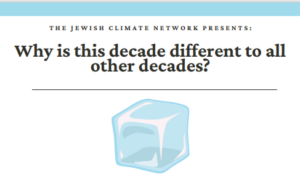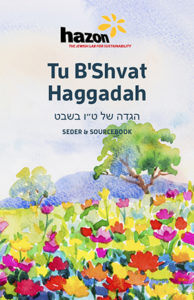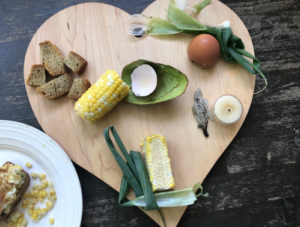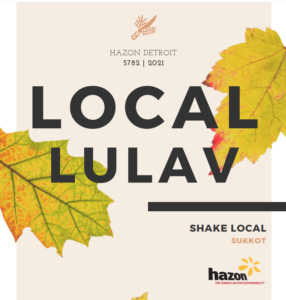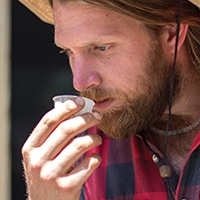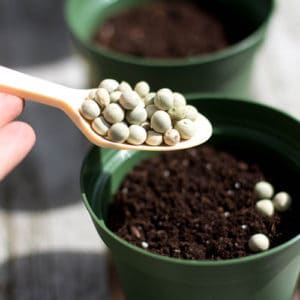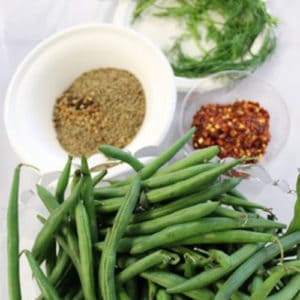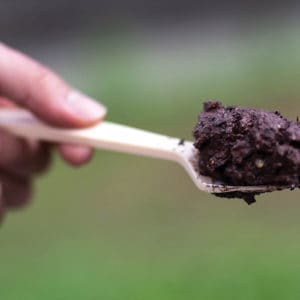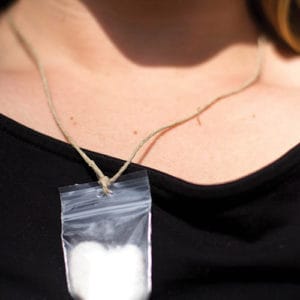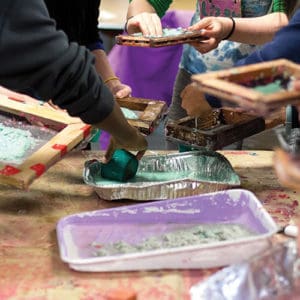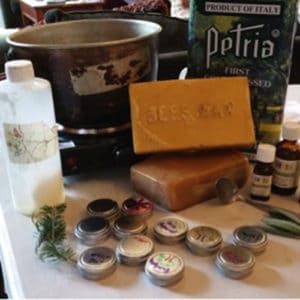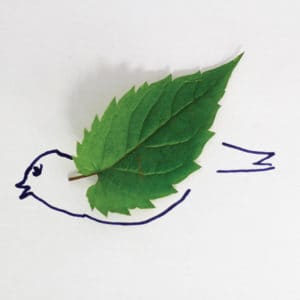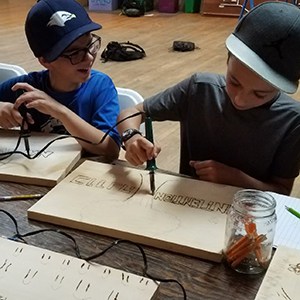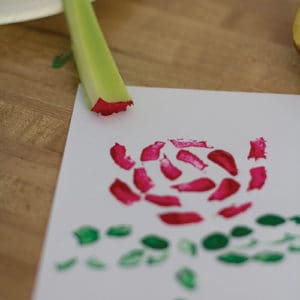Hazon Educational Library: Teens
Ice Block on the Seder Table
From the Jewish Climate Network:
We are asking our community to place an ice block beside the Seder plate and open up a conversation about climate change this year, while linking it to the fundamental themes of Pesach.
The ice block represents the rapidly melting ice caps and sheets throughout the world caused by human
activity. As the ice block shvitzes on our Seder table, we are reminded that time isrunning out for action. It
becomes a physical prompt to ask questions, much like the other Seder table objects prompt questions.
To support these questions the JCN has created a printable Ice Block Challenge guide that can be
incorporated into Seder night.
Tu B’Shvat Haggadah
Hazon
The Hazon Tu B’Shvat Haggadah offer thoughts and ideas to help you celebrate Tu B’Shvat in your home or community. The texts, questions, activities, and suggestions can serve as guides for viewing Tu B’Shvat through fresh eyes and recontextualizing traditions.
Blessing Our Food Waste
Hazon
Through the practice of a food waste ritual, we can find deep lessons in how we gather, cook, and scrap food. We visually express those lessons into a “visual blessing” using actual food scraps and stones or other found natural objects. Then, we craft and recite a spoken blessing. Together, this helps us rethink food waste in our homes and communities.
Local Lulav
Hazon
A Sukkot resource packet with everything you need to shake sustainable, local lulavim. Filled with relevant educational materials, practical shaking and assembly instructions, and accessible spiritual and environmental insights. Created for the Metro Detroit community.
Guess that Smell
Teva
The smell test game is a way to open yourself up to the world of scents. Do you remember a time when you smelled something and it brought you back to another place? It is taught in our tradition that the sense of smell was the least changed after we left the Garden of Eden. What is a smell that reminds you of home? What is a smell that you reminds you of a Jewish holiday?
Category: Spiritual Nature Experience, Sustainability
Tags: Teva
Age(s): Elementary, Teens
Decomposition
Teva
What can return to the earth quickly and what will stick around for hundreds of years? This game will challenge participants to think critically about the trash they produce, what happens when they throw things ?away? and how the earth plays a role in this process.
Category: Food waste, Sustainability
Tags: Teva
Age(s): Elementary, Teens
Microgreens
Teva
Microgreens are mini versions of regular vegetables. The shoots are harvested at a young age, before they grow into fully matured plants. They have a wonderful flavor and are richer in nutrition than their larger counterparts. Best of all, microgreens are fun and easy to grow!
Category: Food & Climate, Sustainability
Pickling 101
Teva
There are many options to preserve each season's harvest, including canning, vinegar pickling, drying, blanching and freezing. This particular activity teaches lacto-fermentation pickling - an easy, fun and extremely health-friendly method of food preservation. Participants will take home a jar of their own and in a few days will be able to eat their own pickles!
Category: Food & Climate, Sustainability
Seed Balls
Teva
Green the world through guerilla gardening! As partners in creation we can bring more beauty and life into the world by seeding areas with more wild flowers. We have inherited a world full of beauty and we know that there are places that could use more wildlife. Through making seed balls we can take small steps toward that more colorful future.
Seed Necklaces
Teva
Life has the vitality to continue on and on - even with just a cotton ball, a plastic bag, and a seed - the plant will grow into a small wearable garden. Seed necklaces are a very simple activity to do outside or in a classroom. In a week or so, participants will be able to watch their seeds sprout and grow. The seeds can then either by planted or fed to animals in the garden.
Age(s): Elementary, Teens
Paper Making
Teva
As we learn from our tradition, we have a responsibility to care for the trees we have and to plan trees for the future. Recycled papermaking is a way of making new paper without needing to harvest more trees.
Category: Crafting + DIY, Sustainability
Age(s): Elementary, Teens
Eco Spa Balm Making
Teva
Our tradition teaches that Shmirat HaGuf (care of our bodies) is important so that we can do good work in the world. To love ourselves we need to take care of our mind, body, and spirit. Using natural products with simple earth-based ingredients is a way of taking care of our bodies and gifting to others.
Category: Crafting + DIY, Sustainability
Leaf Rubbing & Collage Art
Teva
Nature provides beautiful materials which we can create art with. Together we will create lasting art by making leaf rubbings and leaf art. Know that each leaf is different and beauty can be found in each and every leaf. In our Amidah prayer, we give thanks for the miracles that are with us every day.
Category: Crafting + DIY, Spiritual Nature Experience
Age(s): Elementary, Teens
Betzalel’s Workshop
Teva
Betzalel's Workshop involves creating and working with ritual objects from local, organic, ethically sourced, and recycled materials, participants will learn both the centrality of environmental responsibility to Jewish life, as well as a sense of ownership and pride over their participation in Jewish ritual. We feel that, by creating the basic object of a ritual, with all its flaws, character, and uniqueness, children are drawn closer to ritual. By creating an alternative to mass-produced, store-bought Judaica, we create an avenue towards creative, participatory Judaism.
Category: Crafting + DIY, Ritual-Making
Veggie Prints Postcards
Teva
Instead of buying stamps made of plastic or styrofoam, use the unique and natural patterns found in nature to create beautiful art to send to friends and family. If this activity is being run in close proximity to a Jewish holiday, postcards can be framed specifically for these occasions. For example, use oranges, apricots and figs around Tu B'Shvat, use apples for Rosh HaShanah, and use a lulav and etrog after Sukkot.

